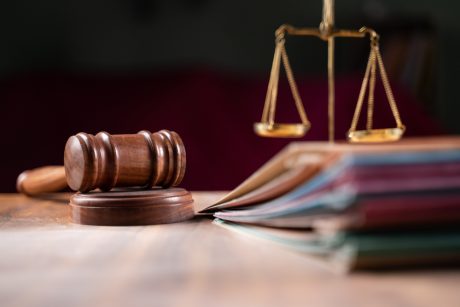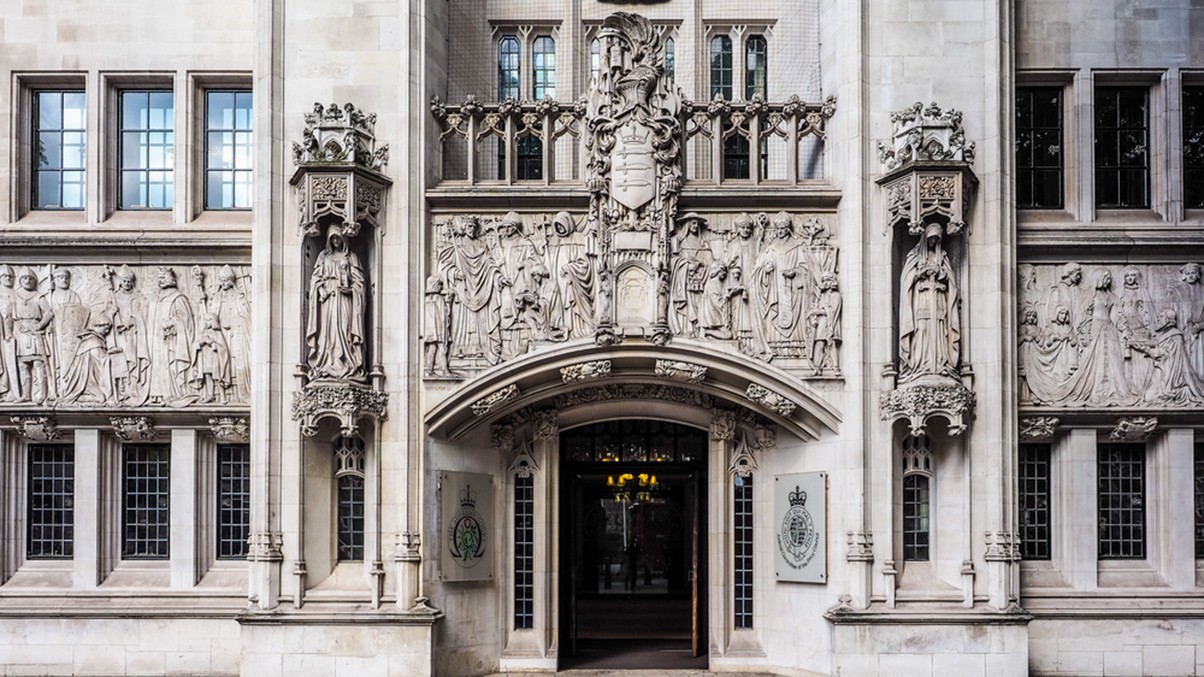The purpose of the Third Parties (Rights Against Insurers) Act 2010 (TPRAIA 2010) is to facilitate third parties recovering from insurers where they are unable to recover from insolvent insureds. However, two recent cases highlight continuing limitations for third parties who, subject to policy terms, can find their ability to recover remains dependent on an insured defendant taking certain actions.
In Archer v R ‘N’ F Catering Limited and Makin v Protec Security Group Limited, both brought under the TPRAIA 2010, the court found that the claimants were unable to recover from the defendants’ insurers because the defendants had breached the notification provisions in their insurance policies. Hebe Swain analyses the decisions and the consequences of the insureds’ non-compliance with policy terms.
Why are these cases significant?
These decisions have had severe consequences for the claimants, limiting their ability to recover sums following breaches by insurers over which the claimants had no control.
Both decisions involved underlying claims for personal injury brought by individuals against companies. The claims were unconnected. In each case, the defendant company entered an insolvency process some years following the incident on which the personal injury claim was based. Following the insolvency, each of the companies’ insurers became additional defendants to the personal injury claims in accordance with the provisions of the TPRAIA 2010. However, due to the defendant companies’ non-compliance with policy terms, the insurers were not required to provide indemnity, and the individuals were unable to recover.
Third Parties (Rights Against Insurers) Act 2010
TPRAIA 2010 enables a claimant to bring a claim directly against a defendant’s insurer if the defendant is subject to an insolvency process. TPRAIA 2010 allows the claimant to step into the shoes of the defendant and acquire its rights to indemnity under the defendant’s policy.
For a claimant bringing a claim under TPRAIA 2010, there will be two limbs for recovery:
- the claimant must prove they would have succeeded in their claim against the insured, and
- they must show that under the terms of the policy, the insurer would be liable to indemnify the insured for its liability to the claimant.
The two cases listed below consider limb (2) and the extent to which the insurers remained liable following a defendant’s non-compliance with policy terms.
Archer v R ‘N’ F Catering Limited and ors
The claim was brought by Miss Archer initially against R ‘N’ F Catering Limited (t/a Biplob Restaurant) (the first defendant) and subsequently also against Riverstone Insurance (Malta) SE (the second defendant), the successor in title to the first defendant’s insurer. Miss Archer sought damages after experiencing severe gastrointestinal illness after a trip to the first defendant’s restaurant, following which she had significant sections of her bowel removed and now uses a stoma bag.
The hearing proceeded on the basis of assumed facts regarding the underlying liability and dealt with the following preliminary issues:
- Can the second defendant prove that the first defendant is not entitled to an indemnity under the policy?
- Does section 9(2) of the TPRAI Act 2010 assist the claimant to render the second defendant potentially liable to the claimant on proof of the first defendant’s liability?
Section 9(2) TPRAIA 2010 states “Anything done by the third party which, if done by the insured, would have amounted to or contributed to fulfilment of the condition is to be treated as if done by the insured.”
TPRAIA 2010 provides that insurers can rely on any defences against the claimant that they could have relied on if the claim had been brought by the insured (section 2(4) TPRAIA 2010). In accordance with the Act, the insurer’s primary defence was that the notification provisions in the policy had been breached by the insured and, accordingly, it was not liable to the claimant.
The insurers alleged that the policy contained various conditions precedent to cover, including that the insured must “as soon as reasonably possible give notice to the Insurer” following “any event or circumstance which could give rise to a claim”. Insurers argued that these provisions had been breached, describing the first defendant’s attitude to addressing the claimant’s claim and notifying insurers as ‘burying its head in the sand’ for months and indeed years, before coming up with a ‘dog ate my homework’ series of excuses”. The claimant did not challenge the insurer’s assertion that these provisions were conditions precedent. On the facts, the court agreed that the notification provisions were conditions precedent and that these had been breached.
As a second line of attack, the claimant argued that despite the insured’s breach, it should not be precluded from recovering from insurers since it would have been impossible for it to have complied with the conditions precedent. The insurer’s rights only vested in the claimant upon the insurer entering into an insolvency process, which was over three years after the incident and the claimant first making her claim. Accordingly, it was impossible for the claimant to have complied with the term requiring notification to be made “as soon as reasonably possible”.
Insurers disagreed, noting that taken to an extreme, the claimant’s position would lead to an absurd result: “If an insured company defended a claim without notifying its insurer and lost the claim at trial after, say, three years of litigation, a claimant may seek to wind up the insured when it could not pay the judgment liabilities. Applying the claimant’s logic, on the winding up of the company, the claimant in the example could then seek to rely on s.9(2) to provide a first notification of the claim to the insurer at that stage. Such an approach would make a mockery of an insurer’s contractual rights to be notified of a possible claim as soon as reasonably possible.”
The court agreed with the insurer, stating that the claimant’s argument would require the court to find that any conditions precedent the claimant was subject to were fundamentally different (as to timescale for compliance) from any conditions precedent the restaurant would have been subject to. The court did not accept this position. Accordingly, the court found that the claimant’s ability to recover was lost when the defendant insured breached the notification conditions.
Makin v Protec Security Group Limited and ors
The decision in Archer v R ‘N’ F Catering Limited (handed down in June) followed hot on the heels of the April decision in Makin v Protec Security Group Limited, which considered similar issues around breach of condition precedent. The court similarly found that the policyholder was unable to recover damages from the insurer.
Mr Makin sadly had a stroke in 2017 after being forced to the ground and held in a headlock by door supervisors of a bar and restaurant in Oldham. Mr Makin was left with serious neurological disability following the stroke. Mr Makin initially brought his claim against the operator of the bar (subsequently discontinued) and Protec Security Group Limited (“Protec”), the alleged employer of the door supervisors. Joint liquidators were appointed over Protec the day before the trial of Mr Makin’s claim, and Protec was absent from the hearing. In its absence, the court found that it was vicariously liable for Mr Makin’s injuries. Subsequently, Protec’s public liability insurer, QBE, was added to the claim under TPRAIA 2010.
The insurer refused indemnity on the basis that the insured had breached conditions precedent relating to notification. The court was asked to consider four issues:
- Was the second defendant (Protech) in breach of the claims conditions under the policy?
- If the second defendant was in breach of the claims conditions, was the result that the third defendant (the insurer) was entitled to refuse cover as of right for the breach of a condition precedent, or did it limit the third defendant to exercising a discretion to refuse cover?
- If the second defendant was in breach of the claims conditions but that breach did not automatically entitle the third defendant to refuse cover, was it entitled to refuse cover on the facts of the case?
- Is the judgment of His Honour Judge Sephton KC on preliminary issues of breach of duty on the part of the second defendant and causation of injury binding on the third defendant for all purposes?
The claims condition in the policy required:
“You or any other party insured by your policy must inform [claims handler]:
- immediately you have knowledge of any impending prosecution, inquest or inquiry in connection with any accident or disease, which may be the subject of claim, give notice in writing and give us any further information and assistance we may require (Condition 3.1) …
- within as soon as practical but in any event within thirty (30) days in the case of any other damage, bodily injury, incident, accident or occurrence, that may give rise to a claim under any your policy but not separate specified above” (Condition 3.5).”
In relation to these and other conditions, the policy stated that “breach of these conditions will entitle us to refuse to deal with the relevant claim”. In view of these terms, the insurer asserted that immediate notification or notification within 30 days was a condition precedent to cover.
On the facts, the court considered that the insured would not have been required to notify insurers immediately after the incident, as Mr Makin walked away from the scene and took a taxi home. There was no suggestion that a claim was likely to arise. Further, at that time, the sole director of the company was on holiday and unaware of the incident.
In the month following the incident, the police carried out an investigation during the course of which the insured’s director returned from leave. The court considered that the duty to notify arose during this time, and notification was not made in a timely manner. Indeed, the court stated that there was no evidence of the insurers having been told until around three years after the incident occurred, when it received an email from the claimant’s solicitors. In view of the delay, the court concluded that the insured was in breach of this condition.
The court then turned to issue (ii), namely, whether the claims condition listed above was a condition precedent. The clause was not described as such, although other clauses in the policy were. The claimant argued that when construing the policy as a whole, the effect of this clause was ambiguous and the contra proferentum rule should apply, ie the ambiguity should be construed in the claimant’s favour. The insurer disagreed, arguing the clause was a condition precedent: the policy expressly provided that breach would “entitle [insurers] to refuse to deal with the relevant claim”. The court agreed with insurers. It found the effect of the clause was sufficiently clear and that it was a condition precedent.
In view of the court’s position on issue (ii), issue (iii) fell away. However, on a positive note for policyholders, the court commented that if the notification provisions had been found to be bare conditions, insurers would not have been able to avoid cover on the basis of the late notification.
Finally, on issue (iv), the court commented that if there had been cover under the policy, the judgment in the underlying claim would have been binding on the insurer. Even though the insured did not attend the trial, the judgment is binding on them, and it would be binding on insurers in the same way.
The decision is being appealed and is listed to be heard by April 2026.
Summary
The outcome of these cases has been severe for both claimants as they have been unable to recover damages from insurers following significant injuries.
In both cases, the failure of the defendant companies to properly notify their claims to insurers had significant consequences for the claimants, although the claimants were not at fault for the breaches themselves. In Archer, the court expressed “significant sympathy” for Miss Archer in its judgment and was alive to the impact the decision would have. In Makin, the court noted, “one must have considerable sympathy for the claimant, but that cannot by itself mean that he has a good legal case”. In both cases, the court considered itself bound by the policy terms and the provisions of the TPRAIA 2010, and unable to impose on the insurers a liability broader than that they had agreed to take on.
Both cases were perhaps particularly challenging for the claimants because:
- The notification provisions in the policies were conditions precedent, and as a consequence, non-compliance entitled the insurer to refuse all indemnity, with no requirement to demonstrate any prejudice. In cases where notification provisions are bare conditions (rather than conditions precedent), the consequence of non-compliance may be less severe.
- There was a lag of many years between the incidents and the defendant companies entering insolvency proceedings. During this time, the claimants did not have a right to claim under the policy and the company, in the usual way, retained responsibility for notifying and updating its insurers. If the insolvencies had occurred earlier (eg shortly after the incidents or around the time the claims were made), the claimant may have been able to step into the shoes of the insured in sufficient time to ensure the policy terms were complied with.
The decision serves as an important reminder for all policyholders about the risks associated with entering into policies that include conditions precedent in their notification provisions, and the importance of being aware of and complying with notification clauses.
For individuals claiming against companies, particularly those perceived as being at risk of insolvency, steps should be taken to interrogate the insurance position and seek confirmation from defendants that claims and potential claims have been notified to insurers at the earliest opportunity. Where insurers’ details are available to claimants, it would be prudent for claimants to notify insurers of the claims as an additional safety measure.
Final thoughts
Dan Herman, Head of the Personal Injury team at Stewarts acting for claimants with life-changing injuries, offers his perspective:
“In cases where the very acts that give rise to a claim are also potential grounds for an insurer refusing indemnity under a policy of employers or public liability, we need to think carefully about the specific allegations we make and also do all we can to ensure we put the defendant’s insurer on notice of the potential claim. We also need to think creatively about whether any other party with effective insurance could also be considered liable to compensate the claimant.
Sadly, we have been involved in cases in which, as a consequence of the defendant’s acts or omissions, we either been unable to find someone to satisfy a judgment secured on behalf of a claimant or have had to discontinue cases because it became clear any judgment would almost certainly go unsatisfied.
For some time we have argued that the government should establish an Employers’ Liability Insurance Bureau which, like the Motor Insurers Bureau, would act as the insurer of last resort and pay any judgments which, for reasons beyond the injured employee’s control, are not satisfied by their employer or its insurer.”
You can find further information regarding our expertise, experience and team on our Policyholder Disputes page.
If you require assistance from our team, please contact us.
Subscribe – In order to receive our news straight to your inbox, subscribe here. Our newsletters are sent no more than once a month.







